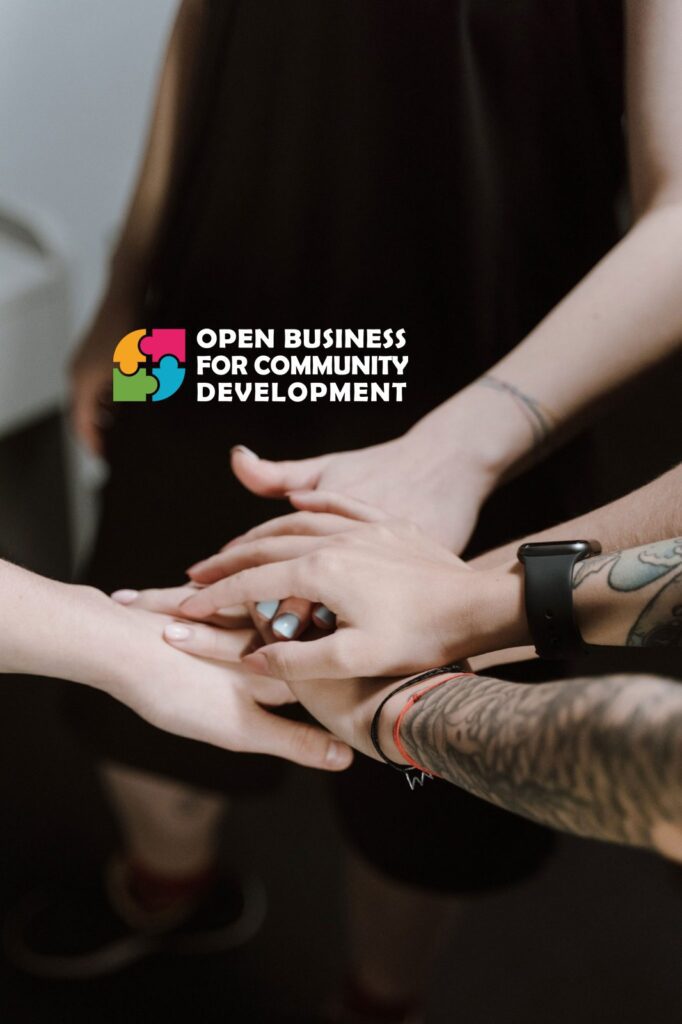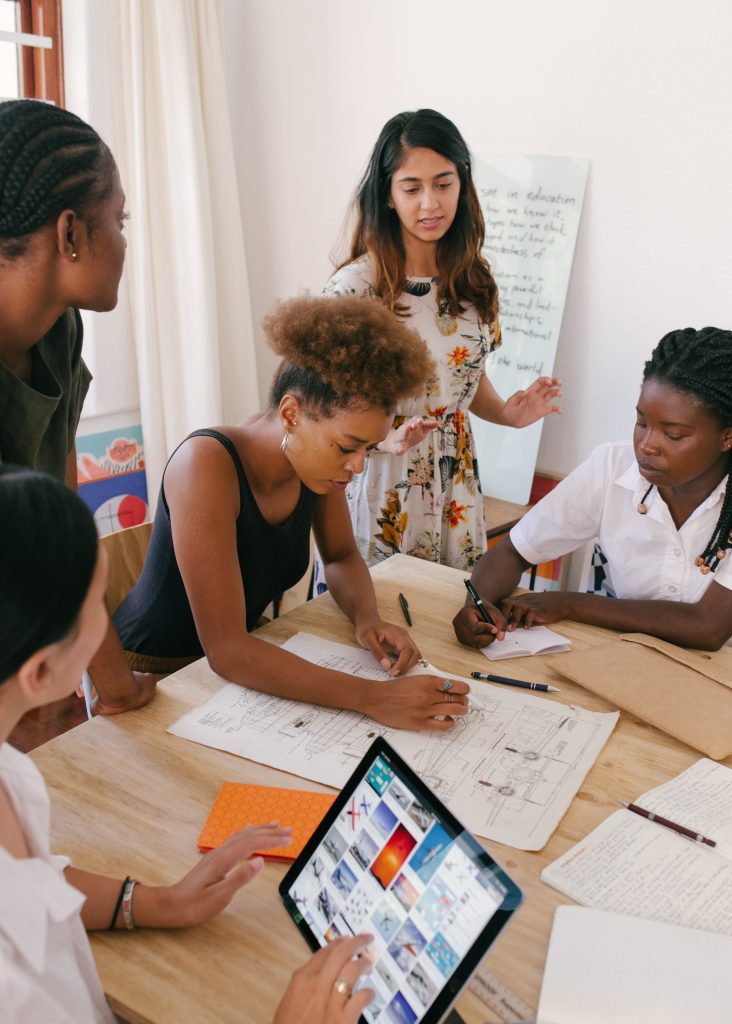The AGCI Umbria, within the actions promoted by the European project OBCD – Open Business for Community Development, in particular in the one related to the construction and development of the Local Ecosystem, considered it important to involve the five social co-operatives that are part of the Italian OBCD Local Ecosystem:
– LUDUS SOCIAL COOPERATIVE
– POLIS SOCIAL COOPERATIVE
– ITINERA SOCIAL COOPERATIVE
– GEA SOCIAL COOPERATIVE
– HERASMUS SOCIAL COOPERATIVE
In the meeting held on Monday, 6 May 2024, at the CGIL Umbria headquarters, the following topics were discussed: 1. prevention and 2. management of burnout in the workplace.
The meeting is part of the initiative, supported by INAIL Umbria and implemented by INCA CGIL Perugia, with the support of AGCI Umbria and Legacoop Umbria, called “WORK AND WELL-BEING“. This project is aimed at implementing actions for the prevention and management of burnout within companies, with particular reference to Social Enterprises, and consists of 4-hour online training sessions, in which the issue of burnout in the workplace is examined.

The initiative was sponsored and financed by INAIL Umbria, which has always placed great emphasis on the prevention of psychosocial risks in the workplace, asking every company to assess work-related stress so that an optimal level of it is present in every organization so that it is a source of stimulation for workers and not stress.
One of the possible consequences of a high level of organizational stress related to poor management is the so-called Burnout phenomenon, which is mainly present in helper professions, such as: social and health workers, nurses, doctors, social workers, educators, teachers and in general the professions related to a helping relationship.
The meetings were held by Dr. Valentina Nardi, Psychologist, Psychotherapist and Labour Consultant, and involved, among others, more than 200 worker members of social cooperatives belonging to AGCI Umbria.
The aforementioned social cooperatives involved participated actively and massively in the meetings, showing considerable interest and appreciation for the approach used and the topic addressed, which is of great topicality in Social Enterprises, especially in the present post-pandemic era.
The event included the following scientific presentations:
Valentina Nardi – Labour Consultant and Work Psychologist, Project Manager for Inca CGIL: The prevention of Psychosocial Risks carried out by the INAIL UMBRIA -INCA CGIL UMBRIA partnership over the years: summary of experiences and results
Alessandra Ligi – Regional Director Inail Umbria: Wellbeing in the workplace at the centre of the agreement between Inail Umbria and Inca CGIL Umbria
Silvio Ranieri – Regional Secretary of Anci (National Association of Italian Municipalities) Umbria: The experience of psychosocial risk management in Public Administrations, the role of Anci Umbria
Mariella Cleri – Lecturer in Work and Organisational Psychology in the Master’s Degree Course in Nursing and Midwifery Sciences at the Faculty of Medicine, University of Perugia: Recognising, expressing, educating human presence in work experiences: an empowering training model
Matteo Ronchetti – Researcher at the psychosocial risks and protection of vulnerable workers laboratory – INAIL DIMEILA: The new frontiers of research in psychosocial risk prevention
The speeches were preceded by greetings from Roberto Panico, Inca CGIL Umbria regional coordinator, and from representatives of AGCI (General Association of Italian Cooperatives) Umbria – President Gabriele Nardini was present -, CONFAPI (Italian Confederation of Small and Medium Industries) Umbria and ANCL (National Association of Labour Consultants) Umbria.

During the event there were several moments of discussion between the users and beneficiaries of the project in question, in which the real cases affecting the Social Enterprises involved in the project and forming part of the Italian Local Ecosystem were explored in depth: several testimonies from social cooperatives were brought in, which shared with all present the problems related to the particular specificities of the helping professions and the Social sector.
Very important was the speech of Dott.ssa Anamaria Voicu, from the POLIS Social Cooperative in Perugia, strongly emphasized the importance of stress and burnout prevention and management actions within social enterprises, especially in this complicated period characterized by the increase in generalized anxiety, the emotional and personal after-effects of the pandemic, the bombardment of highly anxiety-provoking news about international conflicts and tensions, fears about climate change and, last but not least, the difficulties – specific to social cooperatives – in organizational, economic and management terms inherent in the implementation and application of the adjustments provided for in the renewal of the National Collective Agreement for Social Cooperatives.
As other members of the Local Ecosystem were also present, the debate was close and constructive, and the importance of all actions – such as training, coaching, counseling – whose ultimate target is human resources, through the increase of personal competencies – with particular reference to soft skills -, the improvement of interpersonal relations, the rethinking of top-down organizational models, the correct management of conflicts, stress and burn-out situations, emerged strongly.
The meeting on 6 May was therefore an important moment to take stock of the situation with regard to actions that can be taken to promote the well-being of workers within the world of the helping professions organized as Social Enterprises and to relaunch the importance and socio-entrepreneurial value of the entire sector that falls within what can increasingly be defined as the Social Economy.
The President of AGCI Umbria, Gabriele Nardini expressed great satisfaction for the strong attention that is being paid by institutional actors, such as INAIL and ANPI, by O.O. S.S.,by Employers’ Organisations and, not least, by the Social Enterprises themselves, on improving the working conditions of social workers and all those who operate in the Social Economy. This united effort is fully in line with the spirit of the European OBCD project, which is expressed in all the actions, placed within and at the margins of the Italian Local Ecosystem, aimed at promoting an innovative and far-sighted model of inclusive, open, sustainable business with important positive spill-over effects, within the processes inherent to the services provided and externally, towards the entire community.


